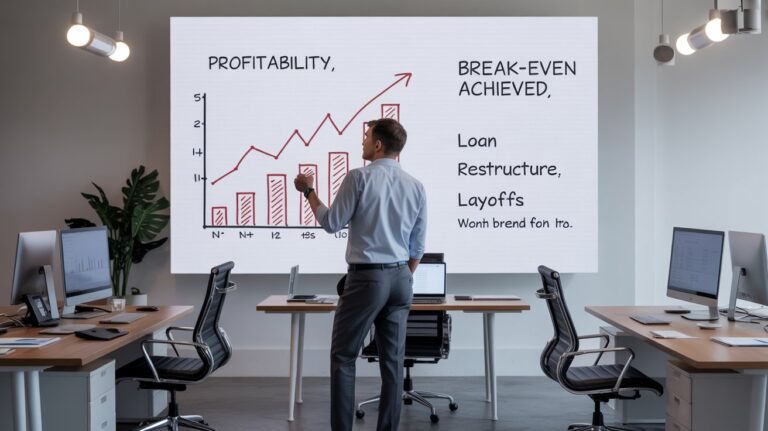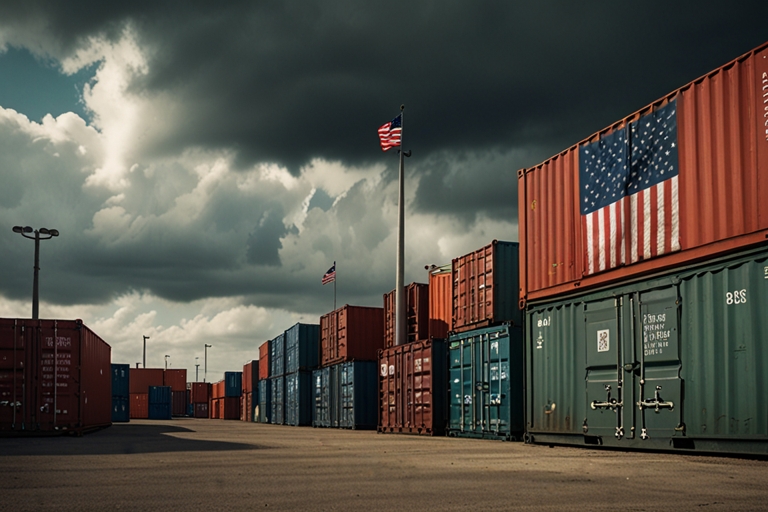
TL;DR
- Nearly half of Americans (45%) say they need $100,000 or more annually to feel financially secure.
- A quarter (26%) say they need $150,000 or more, with 8% needing $200,000 to $499,999 and another 8% needing $500,000 or more.
- Over half (55%) say they’d need $200,000+ to feel financially free, with 26% requiring at least $1 million.
- Median U.S. household income in 2023 was $80,610, well below what many say is needed for security.
- Financial security perceptions vary widely by age, income, parental status, and location.
Americans’ Views on Financial Security Vary Widely
A new survey by Bankrate reveals that perceptions of financial security differ greatly across Americans. About 45% say they would need to earn $100,000 or more annually to feel financially secure or comfortable. Within this group, 26% place the bar at $150,000 or more.
Bankrate’s online survey, conducted by YouGov with 2,260 U.S. adults in mid-May 2025, also asked respondents what income they’d need to feel “rich” or attain “financial freedom.” More than half (55%) said $200,000 or more, with a quarter of those (26%) requiring at least $1 million annually.
What Are Americans Actually Earning?
According to the U.S. Census Bureau’s 2023 data, the median household income was $80,610, significantly less than what many respondents say is necessary for financial security.
Breaking it down:
- Median income for family households (two or more people) was $102,800.
- Married couples reported the highest median at $119,400.
- Median individual income for a full-time, year-round worker was $60,070.
This gap between desired income and actual earnings highlights why many Americans feel financially insecure.
Factors Influencing Financial Security Perceptions
How much income one needs to feel financially secure depends on many variables:
- Current income level
- Age group
- Parental status
- Location and cost of living
- Debt levels
- Assets such as 401(k)s, homes, or businesses
Among respondents already making $100,000 or more, 54% said they’d still need to earn at least $150,000 to feel secure. Age also matters — Gen Xers (45-60) were most likely (35%) to want $150,000+ for comfort, compared to 26% of millennials (29-44) and 20% of Gen Zers (18-28).
Among parents with children under 18, 35% said $150,000+ was necessary, while 33% of parents with adult children (18+) said they would need $1 million or more to feel financially free.
Who Feels Financially Secure Today?
The Bankrate survey found most Americans don’t feel completely secure financially:
- Overall, 77% do not feel “completely financially secure.”
- 32% believe they never will feel completely secure.
- Those earning $100,000+ were likeliest to feel secure, with 42% affirming financial security.
- Only 25% of those earning between $50,000-$79,999 and 12% making less than $50,000 said the same.
By generation, most respondents across the board feel insecure:
- Gen Xers: 84% feel insecure
- Gen Zers: 80% feel insecure
- Millennials: 79% feel insecure
- Baby Boomers: 69% feel insecure
Sarah Foster, a Bankrate economic analyst, summed it up:
“Getting rich may have once been what many Americans fantasized about, but now, simply living comfortably feels like the new aspiration, as economic challenges make financial stability a rare luxury.”
Financial Security Survey Highlights
| Statistic | Percentage/Value | Source |
| Americans needing $100k+ to feel secure | 45% | Bankrate Survey |
| Americans needing $150k+ to feel secure | 26% | Bankrate Survey |
| Americans needing $200k+ for financial freedom | 55% | Bankrate Survey |
| Median US household income (2023) | $80,610 | U.S. Census Bureau |
| % not feeling completely secure overall | 77% | Bankrate Survey |
| % Gen Xers feeling insecure | 84% | Bankrate Survey |
Conclusion
Financial security remains a moving target for many Americans. While a significant portion aspire to six-figure incomes or more to feel comfortable, median incomes often fall short of these goals. Generational differences, family obligations, and economic conditions all shape these perceptions. As Sarah Foster points out, living comfortably may now be the new financial aspiration in a challenging economic environment.






